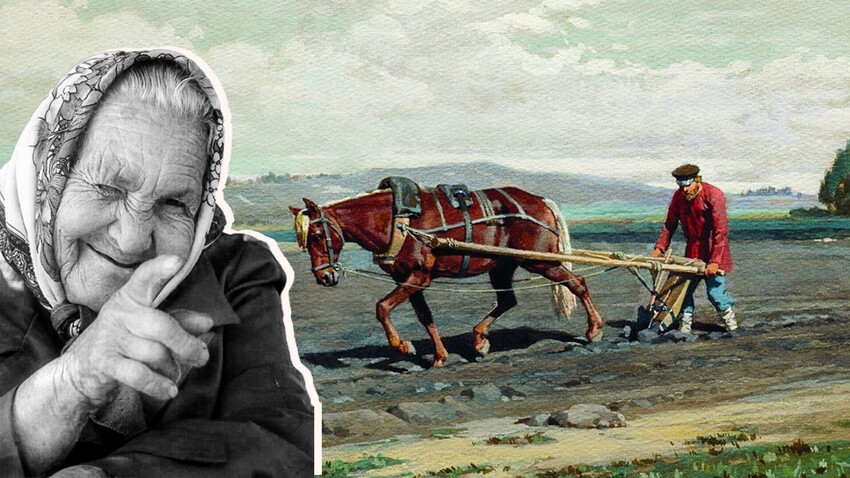
To understand the meaning of this phrase “Vot tebe, babushka, i Yuriev den!” (“Here’s your Yuriev Day, Grandma!”), you need to recall (or find out) what is actually ‘Yuriev Dien’ (‘Yury’s Day’). According to the Russian Orthodox church calendar, it is the day of St. George (a.k.a. George's Day in Fall). In the Slavic version, St. Georgy was translated as Yury. For example, Prince Yury Dolgoruky is the founder of Moscow, while Moscow's saint defender is St. George.
St. George/Yury was also considered the patron saint of farmers in Russia. The day of his memory falls on November 26 (George's Day in Fall). By this time, the last agricultural works and preparation for winter were usually finished.
Peasants in Russia had the right to pass from one landlord to another only once a year. In the Code of Law of Grand Duke Ivan III in 1497 (also known as ‘Sudebnik’), a single transition period was established for everyone: a week before St. George’s Day and a week after it.
Therefore, 'Yuriev Day' became virtually synonymous with a kind of liberation, albeit illusory and short-lived, but freedom, nonetheless.
However, as peasants became more enslaved and serfdom became legislated, they were forbidden to pass even on ‘Yuriev Day’. The document with the exact date of its abolition has not been preserved, but it is known that the first bans were introduced by tsars Ivan the Terrible and then Boris Godunov.
And so, it turns out that the peasants, having got, for example, to a bad landlord, dreamed of ‘Yuriev Day’ in order to leave him and then, suddenly, such an opportunity was deprived.
So, “here's your Yuriev Day, Grandma” is a sarcastic phrase that appeared in the 16th century, meaning there would be no freedom anymore.
There is another version of the expression’s origins: after the end of agricultural work, peasants would often celebrate wildly. Sometimes, the drinking session could last for a week and when the men came to their senses, it turned out that the period of transition had already passed.
Dear readers,
Our website and social media accounts are under threat of being restricted or banned, due to the current circumstances. So, to keep up with our latest content, simply do the following:
If using any of Russia Beyond's content, partly or in full, always provide an active hyperlink to the original material.
Subscribe
to our newsletter!
Get the week's best stories straight to your inbox